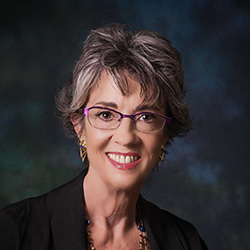By Robyn Stone
Robyn Stone responds to feedback from readers of her November blog.
My last blog, published in the November edition of the LeadingAge LTSS Center’s Research Update newsletter, caused quite a stir among some LeadingAge members. It also prompted some soul-searching on my part.
I was inspired to write that blog after hearing the same question from many LeadingAge members during the 2022 LeadingAge Annual Meeting & EXPO in Denver. These members, who are not people of color, expressed a sincere interest in attending events that the LeadingAge Leaders of Color Network was holding in Denver to celebrate its one-year anniversary. They wanted to support the network’s mission to help leaders of color advance in their careers and feel at home at LeadingAge. But they just weren’t sure if they would be welcome at network events.
I knew that members of the Leaders of Color Network had also been asked this question by members who are not people of color. I was eager to share their response to this question—which has always been a resounding, “yes.”
Yes, all LeadingAge members are welcome to participate in the Leaders of Color Network by attending network events and taking part in network discussions. Those in leadership positions at LeadingAge member organizations are especially welcome to work as allies to advance the network’s mission.
I have been an ally of the Leaders of Color Network since its inception in 2021. What exactly does that mean?
The Harvard Business Review defines allies as people in positions of power who are willing to fight injustice and promote equity in the workplace through “supportive personal relationships and public acts of sponsorship and advocacy.” Allies, write the authors, make it their business to “drive systemic improvements to workplace policies, practices, and culture.”
My blog was written with the intention of inviting other LeadingAge members to become allies of the Leaders of Color Network.
The blog garnered lots of interest from newsletter readers, several of whom contacted me directly. Some correspondents wrote positively about the blog’s message, including my five suggestions for how leaders who are not people of color could support the agenda of the Leaders of Color Network.
Other correspondents objected to the headline of the blog and the subject line of the newsletter email—both of which referred to the fact that “White People are Welcome.” These readers shared, honestly and respectfully, that they were taken aback and disappointed that we would use a phrase that they felt was offensive, racist, divisive, distracting, and confusing.
These emails have been on my mind for the past several weeks, as I pondered three questions:
- Could we have been more careful in the wording of our headline and subject line? Absolutely.
- Did we intend for our word choices to be offensive, racist, divisive, distracting, or confusing? Absolutely not.
- Did readers help me learn important lessons? You bet they did.
I learned that talking about issues related to diversity, equity, and inclusion is not easy. Everyone, including me, needs to approach these discussions with care and sensitivity. We also need to recognize that none of us will say the right things all the time. We must be patient with ourselves and with each other as we journey together along the promising—and sometimes rocky—path to change in our organizations and our society.
Our DEI discussions must be built on the firm belief that all people—and all voices and perspectives—are welcome. We need everyone at the table, not just to talk, but to act—as allies who work for systemic change; as sponsors who connect high-potential employees of color with our powerful, professional networks; or as mentors who help leaders of color navigate organizational barriers to their success.
Until and unless everyone is at the table—listening and taking action—we can’t succeed in building more diverse and inclusive organizations and workplaces.
I’m committed to working with the Leaders of Color Network to provide meaningful forums—online, in person, and in our newsletter—where we can listen to all voices and viewpoints on important DEI topics and then figure out how we will work together to bring about lasting change. I hope you will join us.
Please watch for information about these forums in the coming weeks and months. And remember, all are welcome!

Robyn I. Stone, DrPH, is senior vice president of research at LeadingAge, and co-director of the LeadingAge LTSS Center @UMass Boston. Her widely published work addresses long-term care policy and quality, chronic care for people with disabilities, the aging services workforce, affordable senior housing, and family caregiving.
